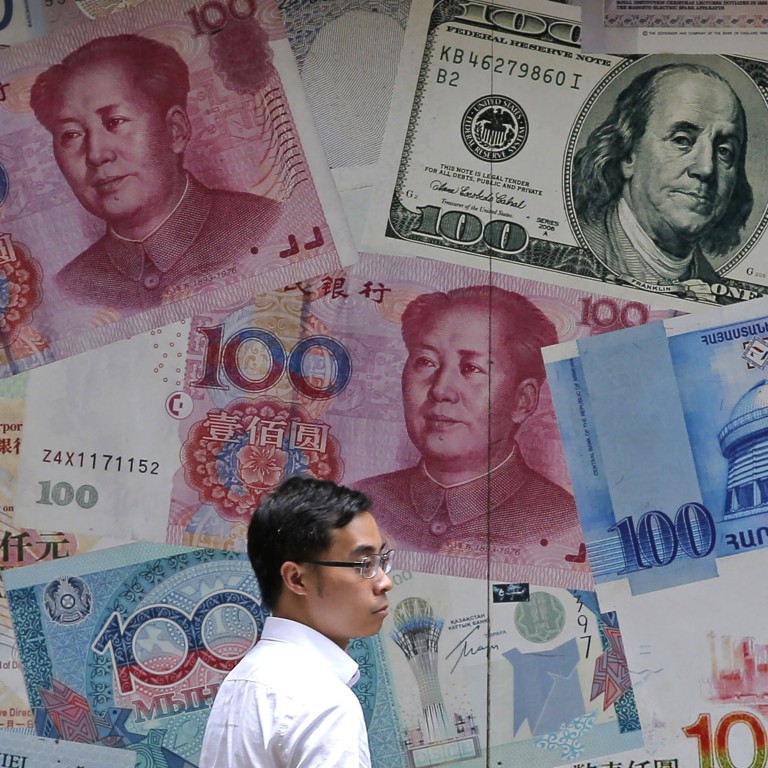
Can China boost foreign asset returns to ease impact of economic slowdown?
- Allowing citizens to invest more internationally could boost their savings returns, says former overseer of international payments
- China’s draconian capital controls let individuals convert up to US$50,000 annually, but only for travel and study, not for investment
China’s foreign exchange reserves currently account for most of its foreign assets and are mainly invested in low-yield US Treasury securities. Chinese households, meanwhile, have a much lower exposure to global assets compared with their peers in developed countries.
In that respect, Guan Tao, the former division director at SAFE who is now chief economist at BOC International, said national policymakers may want to encourage citizens to generate higher investment returns abroad. This, he said, could help hedge against the imminent structural change to China’s current account that makes it a capital importer – buying more from the rest of the world than selling to it.
Guan was speaking during a webinar hosted by the Hong Kong Institute for Monetary and Financial Research on Tuesday.
A country’s current account represents its net income over a period, whereas the capital account records the net flow of investments into the economy during a given year.
“If we liberalise markets now, it is possible that – like Japan, which took its money out early on – our overseas investment allocations will also generate returns, and we will have more capacity to make up for the current account deficit,” Guan added.
The country’s holdings of foreign currency generated an annual average return of 3.68 per cent from 2005 to 2014, according to the latest official data. The share of US dollar-denominated assets among China’s total foreign exchange reserves declined from 79 per cent in 2005 to 58 per cent by the end of 2014 as the government diversified its foreign assets away from low-return US Treasury securities.
Because of China’s draconian capital controls, individuals are currently allowed to convert up to US$50,000 annually, but only for travel and study, not for investment.
To a very large extent, our foreign reserves act as a form of insurance. Its main purpose is not for making returns
But Huang Yiping, a professor with Peking University’s National School of Development, expressed scepticism about the potential benefits of China adjusting its foreign assets to boost investment returns.
“We have made many direct investments abroad in the past, and their returns have not been that high. Whether you can make money overseas will depend on whether you have strong investment-management skills,” Huang said. “To a very large extent, our foreign reserves act as a form of insurance. Its main purpose is not for making returns.”
Guan said that, amid the risk of relatively tighter US monetary policy in the future, China can be confident in its ability to cope with a rebound in the US dollar and a depreciation in the yuan, while still being capable of easing financial liquidity according to domestic economic conditions.
On the other hand, greater volatility in the yuan decreases the government’s reliance on capital-control measures while boosting confidence in the foreign exchange market. This will allow authorities to keep opening up China’s capital account to let money flow both in and out of the country, which in turn will promote yuan internationalisation, Guan said.
“Under this situation, authorities will keep a flexible yuan exchange rate, and will insist on an independent monetary policy,” Guan said, adding that the so-called southbound leg of the current Bond Connect scheme with Hong Kong provided good experience in opening up the capital market.
“Originally, there were worries that the [pricing] premium in mainland stocks would lead to funds flooding out [of Hong Kong] after the launch of Stock Connect, but in fact only 20 per cent of the channel was used, and there was no big outflow.”


